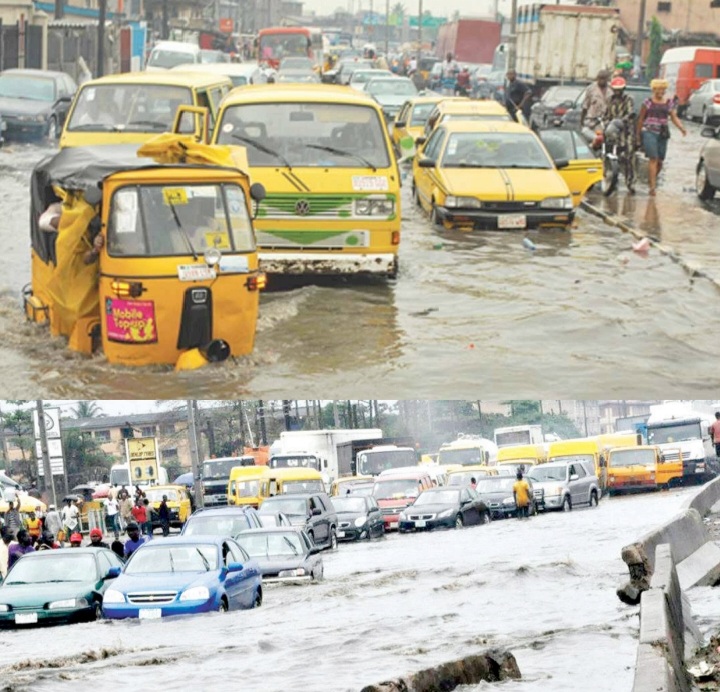How Lagos Utilises N15 Billion 4-year Ecological Fund – Report

Over the past four years (2020 – 22023), the Federal Government of Nigeria has disbursed N15 billion in ecological funds to Lagos State towards tackling environmental challenges confronting the state.
These funds, managed by the Ecological Fund Office (EFO), have been instrumental in addressing various environmental challenges, including flood control, erosion management, and environmental sanitation across the state.
The ecological fund received by Lagos State from 2020 to 2023 was meant to mitigate environmental degradation and improve ecological sustainability.

For example, in 2020, the state received N3 billion, which was used for constructing drainage systems in Lekki and Victoria Island and rehabilitating canals in Alimosho and Ikeja, according to reports from the State Ecological Fund Office.
In addition, shoreline protection in Epe and Badagry and soil stabilisation in Ikorodu were prioritised, with One billion Naira allocated to erosion management. Environmental sanitation programs, funded with N 0.5 billion, included waste management initiatives and public awareness campaigns on environmental sustainability.
The following year, 2021, saw an increase in funding to N4 billion. This amount facilitated the expansion of drainage networks in Surulere and Mushin, alongside maintaining existing flood control infrastructure.
Continued shoreline protection and erosion control efforts in Ojo and Amuwo-Odofin were supported by N1.5 billion, while enhanced waste collection and recycling programs, including the introduction of eco-friendly public toilets, were funded with N0.5 billion, as detailed in the Federal Ministry of Environment’s project documentation.
In 2022, Lagos received N4.5billion. The funds were used for large-scale flood mitigation projects in Lagos Island and Apapa, integrating smart drainage systems to prevent waterlogging. Advanced erosion control techniques were implemented in Agege and Ifako-Ijaiye, and coastal protection initiatives were expanded.
Environmental sanitation projects continued, focusing on community-based waste management initiatives and expanding green spaces and urban gardens, according to the Lagos State Government’s environmental impact assessments.
Meanwhile, the most recent disbursement in 2023 amounted to N3.5 billion. This facilitated comprehensive flood prevention systems in Eti-Osa and Ikeja, along with the upgradation of storm water management facilities. Erosion control projects were finalised, with ongoing monitoring and maintenance efforts.
According to community feedback surveys and case studies, sustainable waste disposal methods and awareness programs on reducing plastic waste were also prioritised.
Evaluating the Effectiveness of the Disbursed Funds
Recent research into the utilisation of these funds reveals mixed outcomes.
According to a study by the Nigerian Institute for Environmental Research, the funds have notably impacted the reduction of flood incidents and the improvement of sanitation.
Enhanced drainage systems have significantly lowered the frequency and severity of flooding in high-risk areas like Lekki and Victoria Island.
Shoreline and soil stabilisation projects have effectively mitigated the effects of erosion, safeguarding infrastructure and property.
However, the research highlighted several areas where the funds’ utilisation fell short. Project delays were caused by bureaucratic red tape and occasional mismanagement of resources.
According to the Centre for Environmental Accountability, some projects experienced cost overruns, and not all intended projects were completed on schedule.
Additionally, the sustainability of completed projects remains a concern, with some facilities requiring continuous maintenance that has yet to be consistently provided.
Community feedback has been instrumental in assessing the real-world impact of these ecological projects.
While many residents in flood-prone areas have reported improved conditions, there have been complaints about the uneven distribution of projects, with some communities needing more support.
Moreover, some locals have scepticism about erosion control measures’ long-term effectiveness, particularly in coastal regions.
Despite these challenges, the overall impact of the ecological funds on Lagos State has been positive.
The projects funded between 2020 and 2023 have laid a foundation for better environmental management and resilience. Continuous funding and improved oversight are essential to address existing shortcomings and ensure that future projects meet their intended goals.
